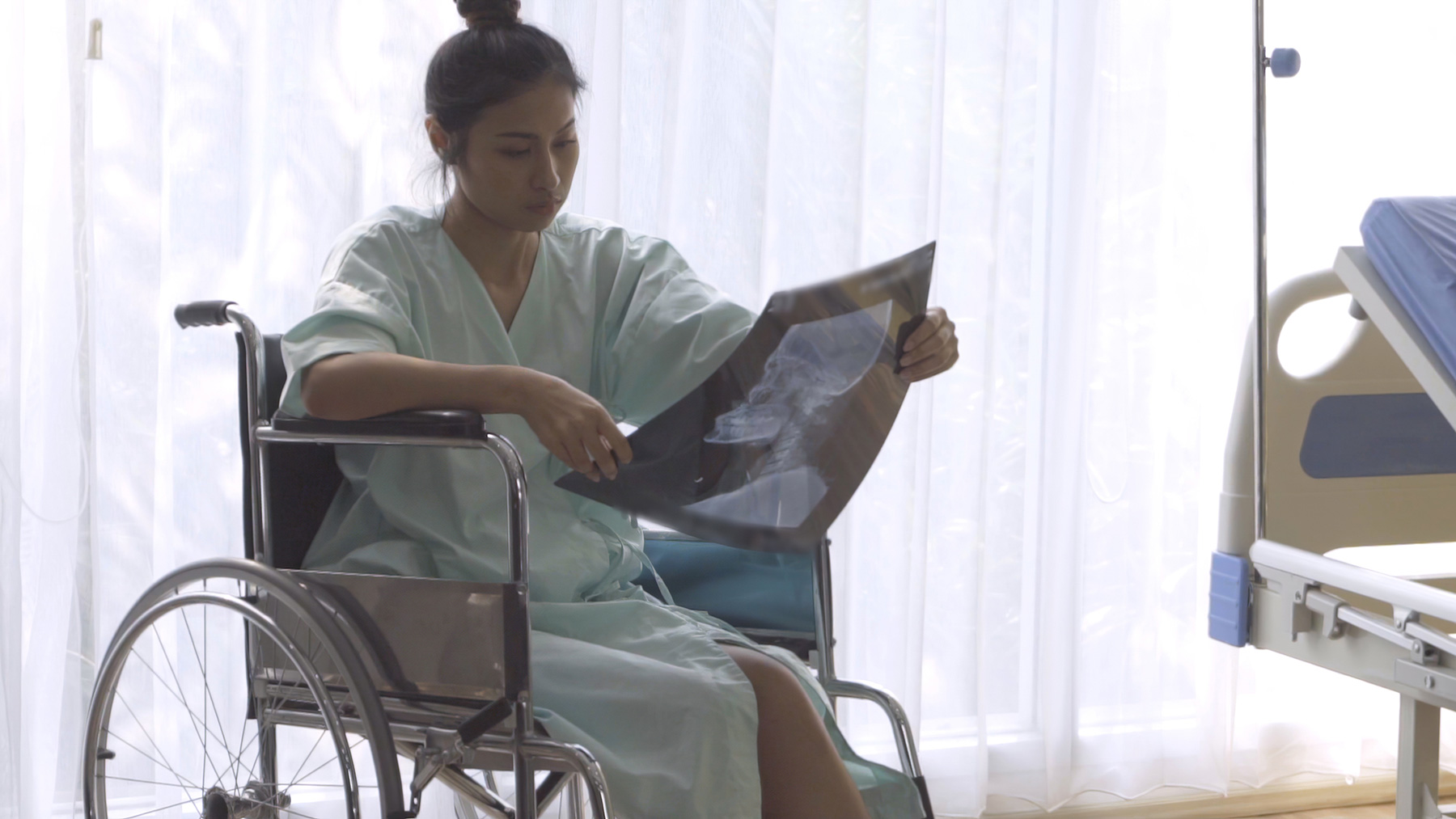Medical Malpractice involves holding a hospital, physician, or medical professional to professional standards of care and representing patients who have suffered injury or death due to a medical professional’s negligence.
Under New York and New Jersey law, any licensed health care provider can be sued for medical malpractice. This includes doctors, nurses, therapists, medical technicians, etc. It also includes corporations and healthcare facilities such as hospitals, nursing homes, and urgent care providers.

In order to establish medical negligence, plaintiff must provide proof that:
The patient is entitled to recover for:
If you have been injured by a medical professional, it is important to seek experienced legal counsel from a medical malpractice lawyer in NJ and NY. At Epstein Ostrove, LLC, our medical malpractice attorneys, Daniel N. Epstein, Esq., and Anna Badalian, Esq., can provide you with a free consultation. Contact us today to learn about your rights.
Medical Malpractice cases are complex, and the outcome of your case is greatly influenced by the attorney you retain. Retaining the right attorney for your medical malpractice case is
imperative if you wish to have a successful outcome and receive the compensation that you may be entitled to.
Under New Jersey law N.J.S.A. 2A:53-27, a medical malpractice lawsuit cannot be filed in court unless the allegations of medical negligence are supported by an affidavit from a qualified expert (i.e., another doctor from the relevant specialty). The plaintiff must provide each defendant with an affidavit from an “appropriate licensed person” (basically, an expert in the same field). In the affidavit, the expert must state “that there exists a reasonable probability that the care, skill or knowledge exercised or exhibited in the treatment, practice or work that is the subject of the complaint, fell outside acceptable professional or occupational standards or treatment practices” This affidavit must be filed within 60 days from the date the health care provider files a formal response to your complaint. The purpose of this is to weed out frivolous lawsuits and that all cases filed have merit.
It is important to identify the exact specialty of the physician or health care professional. In the case of Nicholas v. Mynster 213 N.J. 463, 481-82 (2013), Defendants moved to exclude the testimony of plaintiff’s expert because the medical specialty was not the same as defendant. The court found that under N.J.S.A. 2A:53A-41(a)(1), that the plaintiffs could not establish the standard of care through an expert who did not practice in the same medical specialty as the defendant physicians and the Judge dismissed the plaintiff’s case.
This is one of the reasons why hiring a competent medical malpractice attorney is so imperative for a successful outcome in your case. Our medical malpractice attorneys know exactly which medical specialty to target upon reviewing the medical records.
Under New York law NY CPLR 3012-a, individuals pursuing a medical malpractice claim are required by law to have their attorneys file a certificate of merit with the original complaint. A certificate of merit is a document certifying that the plaintiff’s attorney consulted with a medical expert who has arrived at the conclusion that the plaintiff’s action has merit. The medical expert, who is a physician, must confirm that there is a reasonable basis for the lawsuit and that the plaintiff’s health care provider deviated from acceptable medical practices, resulting in an injury to the plaintiff.
Under New Jersey statute, 2A:15-5.14, there is no limit on the amount of compensation that injured patients can receive for their losses, including noneconomic losses like pain and suffering. However, the state does limit the amount that plaintiffs may receive for punitive damages which is less common. Punitive damages are meant to punish defendants for actions that were due to “actual malice” or “wanton and willful disregard” of the potential harm to others. In these rare cases, New Jersey caps punitive damage awards at $350,000 or five times the award of compensation for the plaintiff’s losses, whichever is greater. New York does not have any restrictions on how much a person can recover in a medical malpractice lawsuit. New York is one of only 15 states that do not have medical malpractice damage caps.
New Jersey Statute of Limitations is 2 years from the date that the “cause of action accrues”. N.J.S.A. 2A:14-2. New Jersey follows the “discovery rule” for determining when the “cause of action arises.” Under this rule, the 2-year period for filing a malpractice claim begins when the plaintiff "discovered" (or a reasonable person should have discovered) that they were injured as a result of medical negligence. Sometimes this is clear with surgical errors, but in other situations, the statute would not start running until the injury is “discovered”. For example, with misdiagnosis cases, the statute would start running until the misdiagnosis starts running.
There are two exceptions to this 2-year statute of limitations rule: Wrongful Death cases and Minors.
New York Statute of Limitations for medical, dental, or pediatric medical malpractice cases is 2 years and 6 months or from the end of continuous treatment by the party you plan to sue for alleged negligence.
In cases where the patient was injured due to a foreign object left inside the body, they must file a claim within one year of the date the object was or should have been found, whichever comes first.
When a minor is injured due to medical malpractice, they have three years from their eighteenth birthday to file a medical malpractice claim; however, the negligent action or omission in question must have occurred within the previous 10 years.
Medical Malpractice covers a vast array of claims and are generally very sensitive in nature. However, some of the most common include birth injuries, misdiagnosis/failure to diagnose, surgical errors, and medication errors.
Birth Injuries: These occur when a doctor, nurse, or midwife fails to properly monitor and address infant distress during pregnancy, labor, or delivery. Common types of birth injuries involve lack of oxygen or blood flow to the brain and damage to the brachial plexus. Birth errors, include those resulting in cerebral palsy or Erb’s palsy, Obstetrical errors, including during prenatal or postpartum care, such as inadequate monitoring, failure to conduct proper tests, or medication errors. Most birth injuries, such as swelling or bruising, are not serious and heal with little treatment. However, serious birth injuries, including cerebral palsy, can leave a child permanently disabled, placing a heavy financial burden on the infant’s parents.
Misdiagnosis/Failure to Diagnose: This occurs when a doctor improperly diagnoses a patient’s condition or fails to diagnose the patient at all, causing them to endure needless procedures or lose time in fighting a critical illness. Failure to order a necessary diagnostic test, misinterpretation of lab results and ignoring a patient’s complaints are costly mistakes that can be particularly devastating in cases of rapidly progressive illnesses.
Surgical Errors: These cases can include receiving the wrong procedure, surgery on the wrong part of the body, and incorrect administration of anesthesia. Surgical errors and mistakes, include incompetence, poor pre-op or post-op procedures, substance abuse by medical staff, and anesthesia errors. Many surgical mistakes occur when a doctor misreads a medical chart, neglects to review medical instructions or improperly clears a patient for surgery. In the most serious cases, surgical errors can result in a loss of function, disfigurement or death. The injuries could be catastrophic.
Medication Errors: Prescription errors can result from medication mix-ups and other types of medical negligence. Mistakes that may cause medication can affect a patient’s health in
catastrophic ways. Medication errors can occur in hospitals, doctors’ offices and pharmacies and are one of the most easily traceable types of medical malpractice.
Lack of informed consent may also be grounds for a malpractice suit. Informed consent is the process of a doctor getting permission from a patient to perform a medical procedure. Valid informed consent requires: Disclosure (Doctor must give you enough information about the procedure so you understand what the treatment involves, the potential results, and what could go wrong, and you have the capacity to make a decision.)

We at Epstein Ostrove, LLC have the skill and experience to assess and develop these complex medical malpractice cases. We can identify the issues which may make your case difficult, and we will identify and hire the best experts to explain what the medical professional in your case did wrong.
Contact Epstein Ostrove, LLC today to discuss any questions and to determine the best course of legal action for your medical malpractice case.